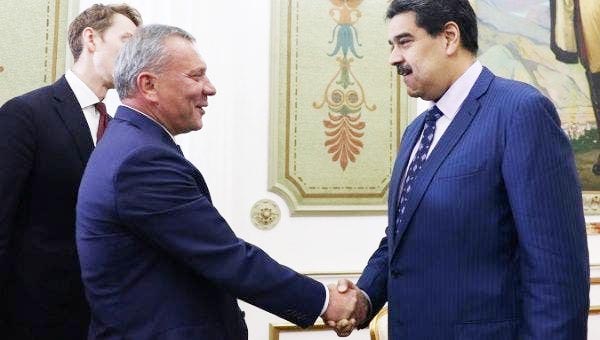With the end of the era of the Donald Trump presidency having, up until now, done little to ease the pressure in Washington to remove the Maduro administration from office in Venezuela, Caracas would appear to be in the midst of consolidating its already close ties with Russia, Moscow having proven to be a strategic ally during the difficult years.
Last week it was announced that arising out of a recent visit to Venezuela by a delegation from the Kremlin, led by Russia’s Deputy Prime Minister Yuri Borisov and meetings with President Nicolas Maduro and other high officials of his government, the two countries signed agreements on energy, trade, finance, transport and military cooperation, among others that will form part of a broader ten-year agenda of engagements between them.
Significantly, Borisov is quoted in a release on the visit as saying that the agreements centred on, “joint investment projects in the development of Venezuela’s hydrocarbon reserves,” as well as a commitment to the continuity of trade between the two countries. The Russian senior official is quoted as saying that bilateral relations between the two countries, up until now “have shown capacity to counteract sanctions” imposed by the US. In what amounted to a strident political pronouncement, Borisov stated that “we rigorously condemn the practice of unilateral sanctions against Venezuela that greatly affect the country’s social situation and limits the possibility of purchasing food and medicine.”
Venezuela has been fending off more than five years of crippling economic sanctions by the US targeting mostly the country’s oil industry and bringing the economy once regarded as the most stable in the region to a near grinding halt. Apart from having specifically targeted Venezuela’s state-owned oil company, PDVSA, Washington and its allies have frozen Venezuelan assets reportedly amounting to around US$7 billion. More recently, the ongoing war of words between Caracas and Washington has drifted into the realm of the COVID -19 pandemic with Caracas asserting that the US blockade had been hampering the acquisition of vaccines and medical supplies. It was this accusation that seemingly led to urgings by UN officials that countries remove coercive measures which the global body sees as violations of human rights and of international law.
There have been other international pronouncements frowning on the US sanctions against Venezuela, one of the more notable ones being a 2019 report by the Center for Economic and Policy Research (CEPR) asserting that the US sanctions were responsible for the deaths of thousands of Venezuelans.
The recent talks between Caracas and Moscow reportedly took place as COVID-19 infections shot up to 1,348 in one day. Venezuela has reportedly received upwards of a quarter of million doses of Russia’s Sputnik V vaccine out of a purchase of ten million doses and Caracas is also reportedly participating in an agreement with Moscow in pursuit of Russia’s EpiVacCorona vaccine trials.
Venezuelan Oil Minister Tareck El Aissami is reported to have said that Russia’s support has helped Venezuela mitigate the damage caused by the US-led sanctions. He is quoted as saying that bilateral relations “have allowed us [Venezuela] to stimulate 20 important areas of cooperation, among which the financial, energy, technical-military, pharmaceutical, and transportation sectors stand out.”






